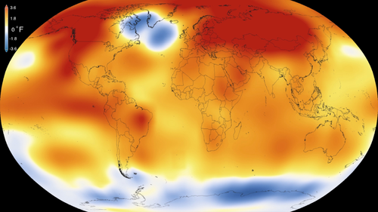Why is TerraFIRMA important?

The central goal of the 2015 Paris Climate Agreement is to keep global warming below 2°C relative to pre-industrial levels.
Global average surface temperatures have already warmed by around 1.1°C, even with country pledges to reduce emissions (so-called Nationally Determined Commitments) the world will likely exceed 2°C warming and possibly more.
Climate change is already causing changes to the oceans, atmosphere, land, ice and ecosystems. Changes in extremes such as heatwaves, droughts, fires, heavy rainfall and storms are increasingly seen and are often linked to climate change. Widespread impacts are occurring across the world, affecting homes, livelihoods, food and water security, and biodiversity.
Scientists already know a lot about how processes in the Earth system function and interact with each other. For example, we have good understanding of how carbon dioxide is taken up by land vegetation and the oceans as part of the carbon cycle. But there are some parts of the system that we don’t fully understand (uncertainties), such as how rapidly excess carbon can be taken up by the oceans and the land and how efficient this natural uptake of carbon from the atmosphere will be as the Earth warms further and CO2 concentrations continue to increase. Methane is another greenhouse gas where emissions are rising rapidly. We need to better understand the role of natural methane emission sources and sinks (e.g. wetlands, permafrost) and their sensitivity to climate warming, as well as how the Earth will respond to increasing methane amounts in a warmer world.
We will use our Earth system model to run scenarios to explore what happens if we go past the warming target of 2°C (overshoot) and what would happen should the warming later be successfully reduced. These experiments will be compared to equivalent model runs where global warming is stabilized at 2°C long-term (non-overshoot).
There is strong policy interest in the consequent impacts of overshooting the temperature targets, and whether these impacts might be reversible if temperatures are subsequently cooled back below the Paris target. TerraFIRMA will assess a range of societal impacts (water resources, air quality, wildfires, marine ecosystems and global sea level) arising from global mean temperatures exceeding 2°C, and the extent to which these impacts are reversible. TerraFIRMA will also assess the risks of rapid change in key Earth system features (e.g. Antarctic ice sheets, marine ecosystems and tropical forests) and the potential reversibility of these changes.